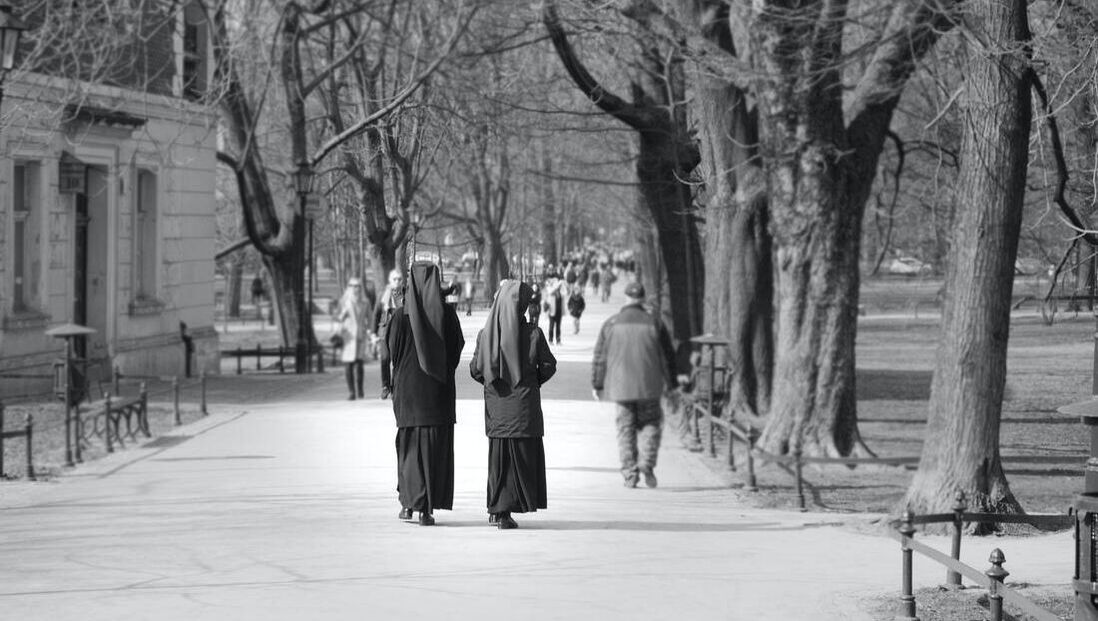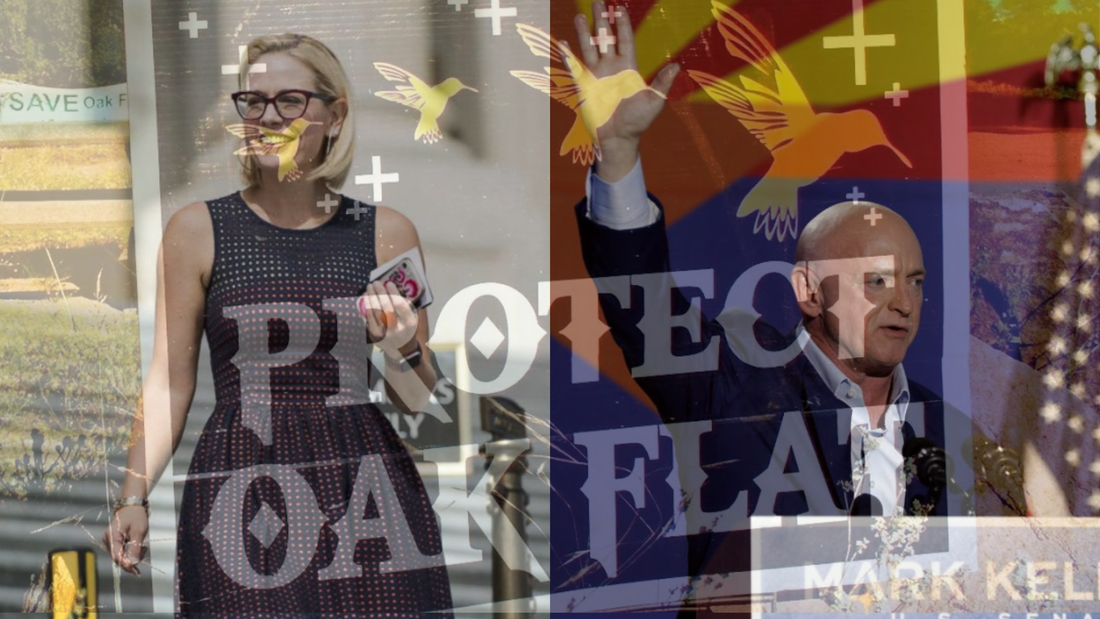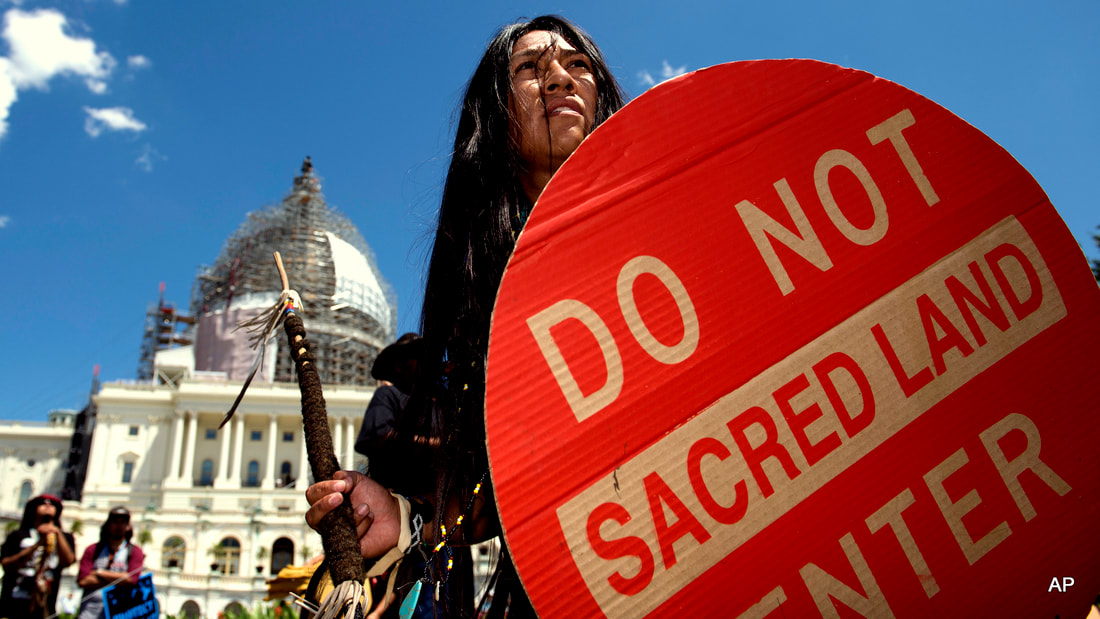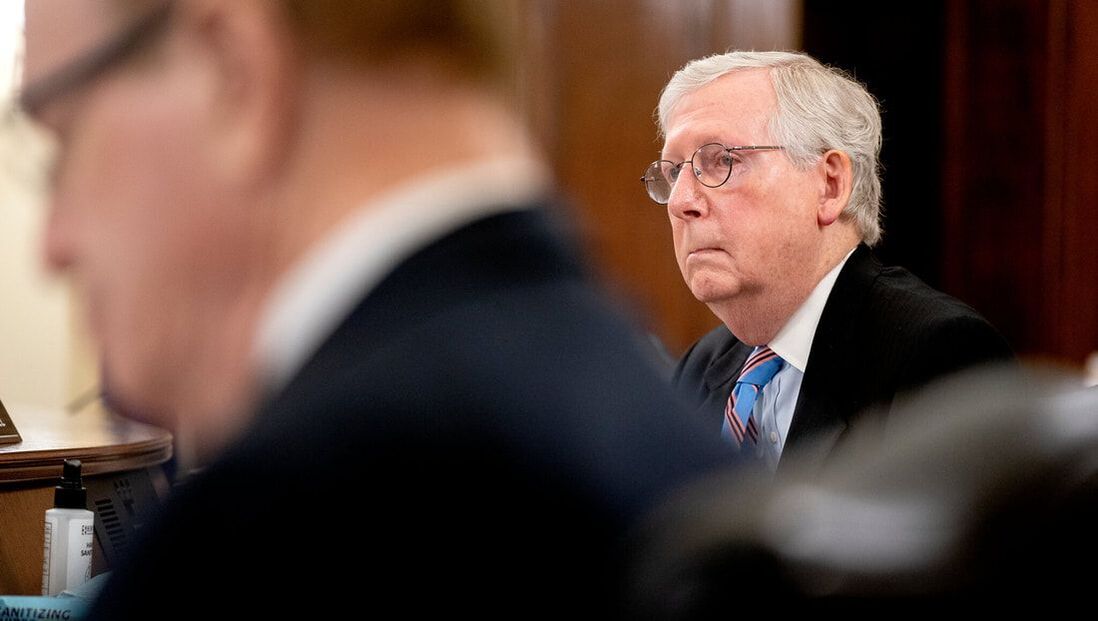|
Collin O’Mara, head of The National Wildlife Federation, sent a letter this week to Attorney General Merrick Garland and Agriculture Secretary Tom Vilsack asking the Biden Administration to discontinue a Trump policy of allowing lands sacred to the Apache to be traded to a foreign mining consortium.
If allowed to continue, the land swap – enacted in a midnight deal by Congress in 2014 – would turn Arizona public lands sacred in Apache religion into a copper mine. The Agriculture Department (which includes the U.S. Forest Service, which oversees the lands in the Tonto National Forest) recently urged the Ninth Circuit Court of Appeals to uphold the land swap. O’Mara highlighted this recent action with the administration’s stated goals in a Jan. 26 presidential memorandum, “Tribal Consultation and Strengthening Nation-to-Nation Relationships.” That document, signed by the president, says:
President Biden concludes:
O’Mara notes the history of ignoring Native American concerns. Referring to the sacred lands by their Apache name, O’Mara writes: “There is no better place to start righting these wrongs than Chi’chil Biłdagoteel and no better time than now.” How many times does the U.S. Supreme Court have to issue a ruling before government officials comply?
Three times the nuns of the Catholic charity Little Sisters of the Poor had to go to the Supreme Court to obtain a ruling that Pennsylvania and the federal government could not require them to provide contraceptives and abortifacients, in violation of their core beliefs. While houses of worship are exempt from this requirement, religious organizations like the Little Sisters of the Poor that provide services to needy people, regardless of faith, were being held to a different standard. Now it is the turn of many more Catholic and Protestant orders, including the nuns of the Anglican Sisterhood of Saint Mary, to have to petition the court in order to stay true to their faith. The Becket law practice reports that this case arose after the New York State Department of Financial Services also tried to narrow existing exemptions to exclude religious ministries that serve people regardless of faith. “It’s a perverse standard,” said Gene Schaerr, general counsel of Protect The First. “If an order lovingly reaches out to the suffering, the elderly and the dying of other faiths, they are put under a more restrictive, punitive standard – one that would force them to either violate central tenets of their faith, or abandon their mission.” Now multiple orders of Catholic and Anglican nuns, Catholic dioceses and Protestant churches are petitioning the Supreme Court in Diocese of Albany v. Lacewell. Lori Windham, senior counsel at Becket said: “New York’s failure to learn from the Little Sisters’ saga that you can’t make nuns pay for abortions is beyond reason. The Court needs to step in and teach New York that lesson.” Hope that the Biden Administration would reverse course and prevent the sacred lands of the tribes of the Apache Stronghold from being destroyed was diminished this week when the U.S. Department of Agriculture urged the Ninth Circuit to allow a land swap to proceed.
If enacted, the Apache’s sacred land, Chi’chil Bildagoteel – recognized as theirs in an 1852 treaty with the U.S. government – will be transformed into a copper mine by a foreign mining consortium. The result will be a two-mile-wide sinkhole, a thousand feet deep. The Department of Agriculture, which includes the U.S. Forest Service, has jurisdiction over the land. Protect The First has joined with a number of other organizations dedicated to civil liberties and religious freedom guaranteed by the First Amendment to urge the Ninth Circuit to protect the Apaches’ sacred land. “We disagree that destruction of our sacred land and stopping our ability to practice our religion are not a ‘substantial burden,’” said San Carlos Apache Tribal Chairman Dr. Wendsler Nosie Sr. “And we disagree that giving away Chi’chil Bildagoteel to a private company, thus subjecting us to criminal trespass arrest for praying on our sacred grounds, is not coercion.” While the court deliberates, the House Natural Resources Committee has passed legislation introduced by its chairman, Rep. Raúl Grijalva, D-AZ, that would protect this sacred land. It is now incumbent upon Arizona’s two U.S. Senators, Kyrsten Sinema and Mark Kelly, to take a stand for their constituents and support Representative Grijalva’s bill in the Senate. This is down to the wire – in Congress and in the court. Protect The 1st urges Arizona’s senators to come down on the side of religious liberty, First Amendment rights that are sacred to Americans of all faiths. Protect The 1st Challenges Weak Standard that Allows Destruction of Religious Sacred Sites5/20/2021
Protect The 1st recently filed an amicus brief in the Ninth Circuit supporting the Yakama Nation and the Grand Ronde Tribes following the destruction of their sacred lands. Its brief summarizes principles of religious freedom important to all communities of faith. In the brief, Protect The 1st argued that a highway enlargement project that destroyed the tribes’ sacred lands substantially burdened their rights under the Religious Freedom Restoration Act (RFRA) and the Free Exercise Clause. For centuries, these Native Americans have revered a scenic site in central Oregon. Ignoring their concerns, the government cut down trees, scattered and removed an ancient altar, unearthed gravesites and killed off medicinal plants. A federal district judge held that the destruction of sacred land did not substantially burden these tribes’ religious exercise under RFRA because it neither deprived the tribal members of government benefits nor subjected them to civil or criminal penalties. If the Ninth Circuit’s narrow standard for what qualifies as a substantial burden is affirmed, no sacred place will be safe. The rights of these Native Americans are shared by all. “It’s too late to protect the sacred land of the Yakama Nation and the Grand Ronde Tribes,” said Bob Goodlatte, former House Judiciary Chairman and now Senior Policy Advisor for Protect The 1st. “We can at least persuade the Ninth Circuit to review its narrow standard of what constitutes a burden on the free exercise of religion. This doctrine is being used by lower courts to hold that the annihilation of places of worship are somehow not ‘substantial’ burdens.” Protect The 1st was joined in its brief by the Jewish Coalition for Religious Liberty, the Sikh Coalition, and the Anglican Church in North America Jurisdiction of the Armed Forces and the Chaplaincy. “If the Ninth Circuit’s narrow standard for what qualifies as a substantial burden is allowed to stand, no sacred place will be safe,” Goodlatte said. “The rights of these Native Americans are shared by all.” Protect The 1st is supporting the Apache tribes in a similar challenge to an 11th-hour deal in Congress slipped into the 2015 defense authorization bill to trade their sacred land to a foreign mining company. If that company is allowed to mine copper, the sacred lands of the Apache will be reduced to a two-mile wide sinkhole a thousand feet deep. “What we’ve seen in Oregon is the tragic result of ambiguity around a single modifier – the word ‘substantial’ – and the inability of courts to see that the destruction of a religion’s sacred site is about as ‘substantial’ as a burden can be,” Goodlatte said. “We hope this case prompts the court to impose a more robust standard that no court can ignore. “Above all, we are working to see that what happened to the Yakama Nation and the Grand Ronde Tribes does not happen to the Apache tribes of Arizona.” This week, Senate Minority Leader McConnell spoke for many on the left as well as the right who are concerned about the impact S.1, the “For the People Act,” would have on Americans’ First Amendment rights of speech and association. The senator said: “This bill is riddled with a variety of different efforts to give Washington D.C. more control and more power over the free speech of American citizens. “Some of this is overt. S.1 would give the newly-partisan FEC major new authorities to police the First Amendment speech of citizens and groups, far above and beyond the regulations that are already in place. A lot more speech would get swept under the feds’ umbrella. “There are also efforts to chill free speech that are more indirect, but still sinister. “Our nation has a long and important history with the subject of associational privacy. “The idea is that Americans are free to form private groups around their interests and values — and neither nosy neighbors nor nosy bureaucrats are entitled to know who believes what unless individuals choose to go public. Americans are free to form private groups around their interests and values — and neither nosy neighbors nor nosy bureaucrats are entitled to know who believes what unless individuals choose to go public. “In 1958, the NAACP took this issue all the way to the Supreme Court and won a landmark case against the state of Alabama. “More than 60 years ago, folks understood that when the government tries to force private organizations to publicize their supporters, the First Amendment is the biggest loser. “Our current, hyper-politicized climate is the last time we can afford to forget these lessons. “In a world where Americans with unfashionable views are subjected to online harassment… where strangers come after people’s employment for expressing views… the same privacy rights that the NAACP fought for 60 years ago remain paramount. “That’s why my First Amendment and privacy concerns with so many parts of this bill have been echoed by folks that might surprise you. More than 60 years ago, folks understood that when the government tries to force private organizations to publicize their supporters, the First Amendment is the biggest loser. Our current, hyper-politicized climate is the last time we can afford to forget these lessons. “In a recent Washington Post op-ed, lawyers from the liberal American Civil Liberties Union warned that aspects of the bill before us, quote, ‘could directly interfere with the ability of many to engage in political speech about causes that they care about and that impact their lives.’” Protect the 1st's senior policy director and former congressman, Rick Boucher, and our policy director, Erik Jaffe, write in the Wall Street Journal on how all of our religious liberties are at stake in a copper-mining plan that threatens a sacred Apache site.
Protect The 1st's policy director, Erik Jaffe, joined The Federalist Society in a discussion on Americans for Prosperity Foundation v. Becerra that involves donor disclosure, freedom of speech, and the First Amendment.
|
Archives
June 2024
Categories
All
|
ABOUT |
ISSUES |
TAKE ACTION |






 RSS Feed
RSS Feed